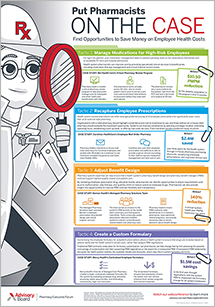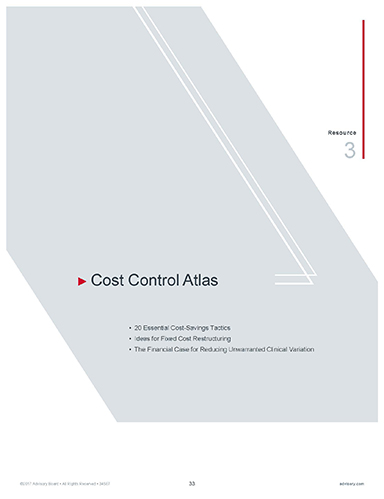Auto logout in seconds.
Continue LogoutU.S. residents mostly blame the health care industry for high health care costs, with at least 70% of respondents to the Kaiser Family Foundation's (KFF) latest Health Tracking Poll saying drug companies, health insurers, and hospitals are at fault for rising costs.
Sept. 27 webconference: What the midterms do (and don't) mean for health care
The poll—which covered a wide range of health care topics, from surprise medical bills to President Trump's public criticism of rising drug prices—is based on a telephone survey conducted from Aug. 23 to Aug. 28 among a nationally representative sample of 1,201 U.S. adults.
Findings
Health care costs
According to the poll, 89% of respondents are concerned about rising out-of-pocket health care costs, including about 60% who said they are "very concerned" about such increases.
When asked to select "a major reason" for the rising health care costs, a majority of respondents pointed to drugmakers, hospitals, insurers, and overall fraud and waste in the industry. In particular, the poll found:
- 78% of respondents said drugmakers make too much profit;
- 71% of respondents selected fraud and waste in the health care system;
- 71% of respondents said "hospitals charge too much" for services;
- 70% of respondents said health insurers generate too much profit;
- 62% of respondents said new drugs, treatments, and medical technologies often are costly;
- 49% of respondents said "doctors charge too much" for services;
- 47% of respondents said the aging U.S. population is driving up health care costs;
- 45% of respondents cited the cost of medical malpractice lawsuits as a reason for rising health care costs;
- 41% of respondents said the use of medically unnecessary services is driving up health care costs;
- 39% of respondents said the Affordable Care Act (ACA) is increasing health care costs;
- 38% of respondents said the Trump administration's actions on health care are driving up costs; and
- 28% of respondents said insured individuals not shopping around for lower-priced medical services leads to higher costs.
When asked which health care costs they were worried about most, 67% of respondents said not being able to afford an unexpected medical bill, while 53% of respondents said not being able to afford their health plan's deductible.
Prescription drug costs was another top concern among respondents, with 44% saying they are very or somewhat worried about being able to afford their out-of-pocket drug costs. According to KFF researchers, the poll showed "large partisan differences" in opinion on Trump's efforts to address rising prescription drug prices. The poll found 74% of Democratic respondents said Trump's strategy will not be effective, while 31% of Republican respondents said Trump's strategy will not be effective.
2018 midterm elections
When KFF researchers asked respondents what topics they most want candidates to discuss during the upcoming midterm elections, health care ranked second, with 81% of respondents naming health care as the most important or a very important issue. According to the poll, 32% of Democratic respondents and 25% of Republican respondents said health care is the most important topic that candidates should discuss. Among respondents in battleground states, 26% said health care is the most important topic for candidates to discuss.
ACA
KFF researchers also asked respondents about their opinions on certain ACA provisions currently at the center of a lawsuit—known as Texas v. United States—challenging the constitutionality of certain portions of the law.
The poll found that:
- 75% of respondents—including a majority of both Democratic and Republican respondents—said it is very important for the ACA's protections for U.S. residents with pre-existing conditions to remain law; and
- 72% of respondents said it is very important for the ACA's community rating provision, which prohibits insurers from charging certain individuals more for coverage, to remain law.
Overall, the poll found that about 50% of respondents said they view the ACA favorably, while about 40% of respondents said they had an unfavorable view of the ACA (Baker, "Vitals," Axios, 9/5; Rau, Kaiser Health News, 9/5; Weixel, The Hill, 9/5; Levey, Los Angeles Times, 9/5).
Sept. 27 webconference: What the midterms do (and don't) mean for health care
Health policy has emerged as a key source of debate in the impending midterm elections. Join a panel of Advisory Board experts to get our take on how the elections will—and won't—impact the outlook for health policy in 2019 and beyond.
Don't miss out on the latest Advisory Board insights
Create your free account to access 1 resource, including the latest research and webinars.
Want access without creating an account?
You have 1 free members-only resource remaining this month.
1 free members-only resources remaining
1 free members-only resources remaining
You've reached your limit of free insights
Become a member to access all of Advisory Board's resources, events, and experts
Never miss out on the latest innovative health care content tailored to you.
Benefits include:
You've reached your limit of free insights
Become a member to access all of Advisory Board's resources, events, and experts
Never miss out on the latest innovative health care content tailored to you.
Benefits include:
This content is available through your Curated Research partnership with Advisory Board. Click on ‘view this resource’ to read the full piece
Email ask@advisory.com to learn more
Click on ‘Become a Member’ to learn about the benefits of a Full-Access partnership with Advisory Board
Never miss out on the latest innovative health care content tailored to you.
Benefits Include:
This is for members only. Learn more.
Click on ‘Become a Member’ to learn about the benefits of a Full-Access partnership with Advisory Board
Never miss out on the latest innovative health care content tailored to you.


